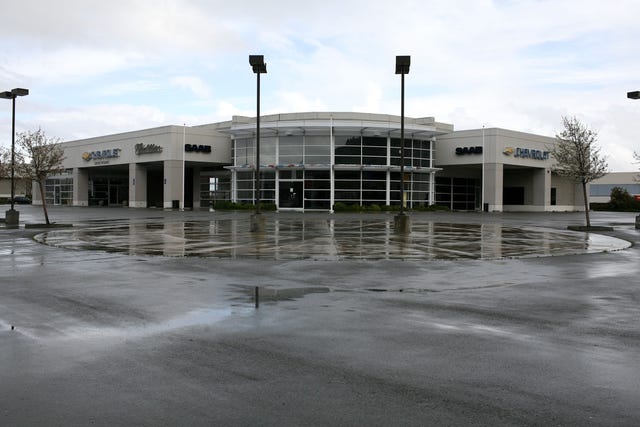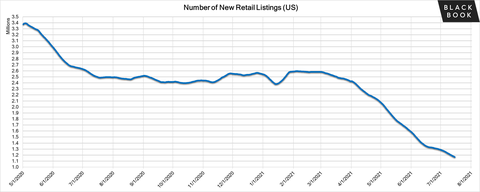
Justin SullivanGetty Images
- The backlog of available new-car inventory is getting cleaned out after production was hit by the pandemic and related problems including the chip shortage, according to the data and analytics team at Black Book.
- New-car sales in June were down around 14 percent compared to pre-pandemic numbers from 2019, according to the data and analytics team at Black Book.
- It's likely to get worse in the near term, as the number of new vehicles available in the marketplace has dropped substantially and production still hasn't caught up to demand.
The semiconductor chip shortage that's affecting new vehicle supply and causing used car prices to climb is officially, concretely affecting new car sales. It's not a surprise and dealers and shoppers all knew this was coming, but now we have the data to prove it.
Numbers collected by Black Book, Hearst's data and analytics arm, show that new-car sales for June were down about 14 percent compared to 2019 (2020 is not a good marker to look at for comparison to what's "normal," since that was during the pandemic). This was the first month where the shortage affected actual sales. As you can see in the chart above, which shows the average number of new listings using a two-week moving average, the number of new vehicles available in the marketplace has dropped substantially.
Starting from a base of around 3.4 million units in May 2020, the number of new-vehicle retail listings dropped off to around 2.5 million by last July. But then it stopped declining, hovering between around 2.2 and 2.7 million for about nine months. Things started to decline in May and have only just continued to fall. For mid-July 2021, the number of new retail listings is around 1.2 million.
"We saw a substantial drop in available new inventory starting early in the spring due to chip shortage," said Alex Yurchenko, senior vice president of data science and analytics at Black Book. "The inventory was dropping fast throughout the spring [as] dealers were selling everything they got with very low incentives and high speed."
Looking forward, the second half of 2021 is likely to be another wild roller coaster for people looking to buy and sell cars.
"We expect the sales to remain below 2019 (and 2020) levels at least in Q3 with some rebound later this year," Yurchenko said. "The timing is still a big unknown. Even talking to OEMs does not help. Once the production numbers are restored, we expect the incentives to go up as many OEMs will fight to regain market share."
Around 17 million cars were sold in the U.S. in 2019, the fifth year in a row the industry moved that much metal. Yurchenko said Black Book's current projections for 2021 sales remain at 16 million, with sales numbers dropping in the third quarter, and possibly also the fourth, due to the shortage.
"Our current view is that it will get worse before it gets better," he said.
This content is imported from {embed-name}. You may be able to find the same content in another format, or you may be able to find more information, at their web site.
This content is created and maintained by a third party, and imported onto this page to help users provide their email addresses. You may be able to find more information about this and similar content at piano.io
"car" - Google News
July 18, 2021 at 11:01PM
https://ift.tt/3BfirYq
Chip Shortage Is Now Affecting Actual New Car Sales Numbers - Car and Driver
"car" - Google News
https://ift.tt/2SUDZWE
https://ift.tt/3aT1Mvb
Bagikan Berita Ini















0 Response to "Chip Shortage Is Now Affecting Actual New Car Sales Numbers - Car and Driver"
Post a Comment